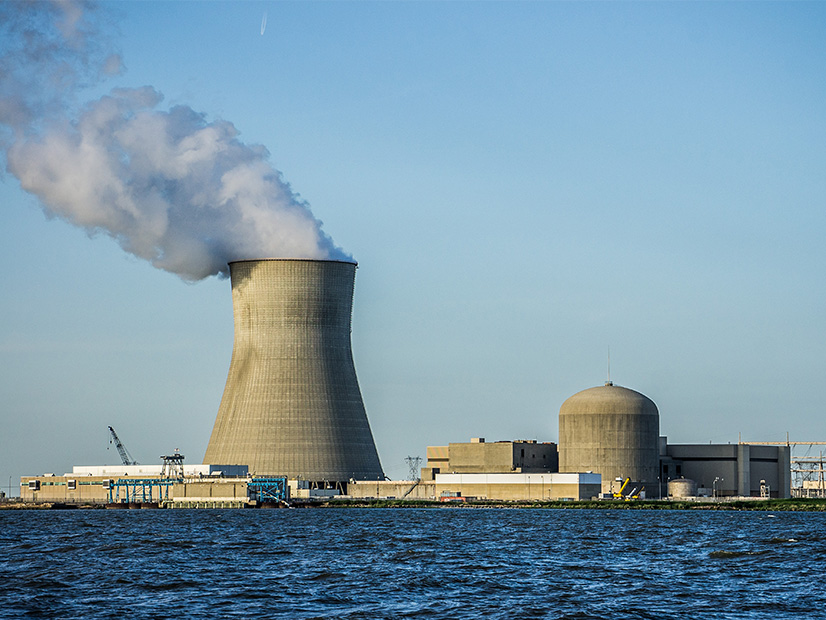The New Jersey Division of Rate Counsel on Tuesday appealed the state Board of Public Utilities’ recent award of $300 million in subsidies to three nuclear plants, echoing a lawsuit that unsuccessfully sought to overturn a similar award made in 2019.
The appeal to the Superior Court’s Appellate Division seeks to stop the three-year subsidy agreement, running from June 2022 to May 2025, awarded on April 27 under the state’s Zero-Emission Certificate program. The continued operation of the plants, which say they need the subsidies to remain open, is a key part of Gov. Phil Murphy’s effort to move the state toward 100% clean energy by 2050. (See NJ Nukes Awarded $300 Million in ZECs.)
The subsidies of $10/MWh will go to the Hope Creek nuclear power plant, which is owned and operated by Public Service Enterprise Group, and the Salem 1 and 2 units, which PSEG operates and co-owns with Exelon.
The ZEC program, created by the state legislature in 2018, provides subsidies to nuclear power plants at risk of closure so they can remain open to generate carbon-free power. The BPU, in the first use of the law, awarded $300 million to the plants in 2019, which the Division of Rate Counsel appealed. A state appellate court rejected that appeal on March 19.
Rate Counsel Director Stefanie Brand said Wednesday that while her arguments are broadly similar to the earlier suit, she will argue this time that state law gave the BPU more flexibility to award smaller subsidies than the maximum of $10/MWh. (See Appeals Court Backs NJ Nuclear Subsidies.)
Brand said that for the initial award, it was unclear whether the law the BPU to make an award other than the full amount. But, she argues, it clearly gave the BPU the ability to decide the size of the latest award. She said she will argue that the BPU did not follow the criteria laid out in the law to analyze how much the plants should get.
“They’re not looking at the financial criteria. They’re only looking at the companies’ threat to shut down,” Brand said of the BPU’s evaluation of what size subsidy to award. “They don’t even do the analysis to look at whether they should lower the rate, even though there’s no question that on the second round, they were allowed to lower the rate.
“They just said, ‘The company tells us they want the full amount; we’re giving them the full amount, because they say they’re going to shut down if they don’t get the full amount,’” she said.
In the first suit, Brand argued that the award of ZECs to the three plants was arbitrary and capricious and that none of the three plants need the subsidies to remain financially viable. Dismissing the case, the court agreed with the BPU that it had correctly included the “costs and risks” of running the plants when it concluded that they would not operate profitably without the subsidy.
The Rate Counsel on April 14 appealed the case to the state Supreme Court, where it is still pending. (See NJ Rate Counsel Turns to State Supreme Court over Nuke Subsidies.)
Nuclear power accounts for 90% of the state’s carbon-free power, according to the BPU. Murphy has said he wants to boost the share of energy generated by carbon-free resources to 50% by the end of the decade.
Before the April 27 vote, BPU members said they had little choice but to award the full amount because the environmental and financial cost of not awarding the ZECs would be too great. Commissioner Bob Gordon said PSEG executives told the board that unless the company received the maximum award of $10/MWh, the company would shut the plants down.
BPU Executive Director Paul Flanagan told the board that based on his staff’s evaluation of the plants’ position, “there is financial risk in the continued operation of the units pursuant to the ZEC Act, and an award of less than the full authorized ZEC amount may not be sufficient to prevent the closure of the unit.”
PSEG said it had no comment on the Rate Counsel’s appeal.


